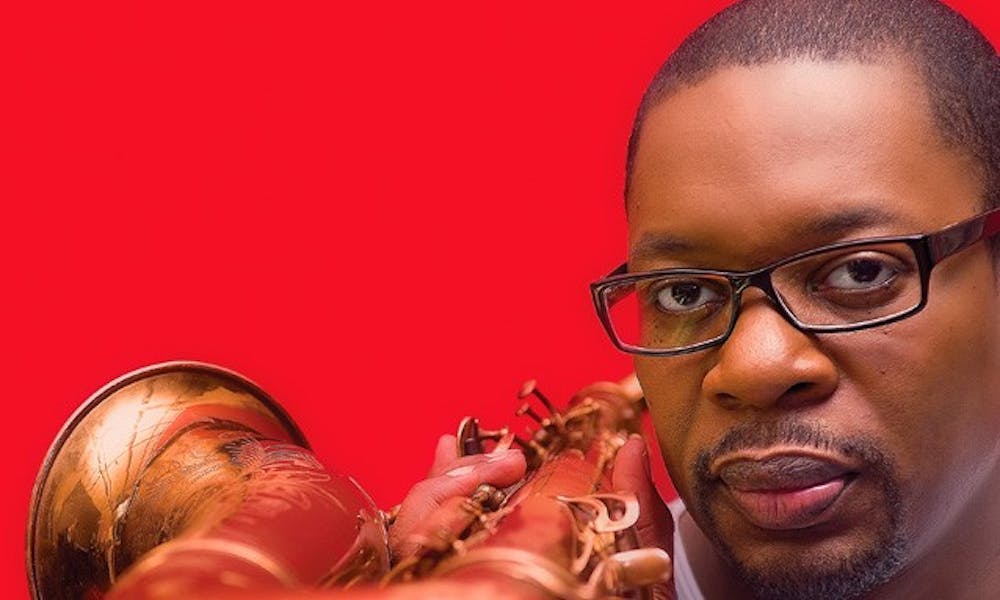To understand who Ravi Coltrane is, you have to start by understanding who he’s not.
He’s not his mother Alice, the celebrated pianist, organist and composer who passed away in 2007 after a career exploring the convergences between Eastern spirituality and jazz. Nor is he his father John, the legendary saxophonist from North Carolina who died before Ravi was three years old.
For Ravi Coltrane, comparisons to the legacies of his parents are largely irrelevant to his own music.
“It’s such a personal thing to be an improviser and a composer,” Coltrane explained. “It’s really about you, about what you want to do with your art, with what suits you as a musician. The opinions of others exist outside of your work. They’re external pressures.”
Indeed, the saxophonist has not needed to rely on his surname to make a considerable mark on the contemporary jazz scene. Coltrane recorded Moving Pictures (1998), his first album as a bandleader, after appearing on more than 30 recordings as a guest artist. In 2005, he released In Flux, an album that pushed the boundaries of spontaneous group composition with a number of tunes created on the spot in the studio. Coltrane described this album as an exploration of the unexpected, full of improvisations intended to “stretch your ears.”
Last year’s critically acclaimed Blending Times finds the quartet of Coltrane, pianist Luis Perdomo, bassist Drew Gress and drummer E.J. Strickland exploring even further possibilities of collective interplay. The music is often free of traditional song structures and clearly defined solo spots. On “First Circuit,” for example, the group emphasizes contrasts in timbre as instruments weave in and out of the dialogue; another tune, “Amalgams,” begins with a soft and expressive conversation between the piano, bass and tenor sax.
“There’s just so much you can do with improvisation,” Coltrane said about his musical direction. “Whatever you feel, whatever you hear, whatever you’ve learned. When you multiply that by four or five, the directions start to become almost limitless—you might be feeling one thing, the pianist plays another thing. It’s an exponential growth in ideas.”
Although he grew up surrounded by music, Coltrane didn’t begin playing jazz until he was a teenager. As a result, he draws inspiration from a wide variety of styles, including the soul music of James Brown and Sly Stone and the work of composers like Stravinsky and Dvorak. Recently, his playlist has grown to include popular artists like OutKast.
“There’s always something to listen to and to try to draw from,” he said. “I’ve always gone back to the old favorites, though, like the Beatles and Stevie Wonder.”
This unorthodox combination of influences lends him a rich sound on the saxophone and a unique songwriting style.
“His playing and composition sort of sneak up on you,” said Aaron Greenwald, director of Duke Performances. “He starts in a more intimate place than most saxophonists. Overall, the work has an accumulative effect: a certain amount of subtlety along with an understanding of dynamics and how that works in music.”
The Ravi Coltrane Quartet will play this weekend’s WAIL! festival, a celebration of contemporary innovation on the saxophone. The three-part festival will also feature Miguel Zenon’s Esta Plena Septet and Rudresh Mahanthappa’s Indo-Pak Coalition.
“Together, these artists bring three key elements,” Greenwald said. “They effectively blend their own cultural perspectives into the jazz tradition. They don’t sacrifice the communication and interplay that marks the best jazz. And they all play with a sense of lyricism that makes them immediately accessible.”
In Coltrane’s view, Saturday’s performance will be a unique opportunity for the band to exchange ideas with a receptive audience.
“[University concertgoers] are younger, they’re hipper, they’re exposed to a wider palette of things going on,” Coltrane said.
Additionally, guitarist David Gilmore, a veteran of Wayne Shorter’s group and longtime friend of Coltrane’s, will fill in for Perdomo. Both Coltrane and Greenwald praised Gilmore’s versatility as a musician and his ability to perform in a wide range of different contexts.
Given the quartet’s knack for spontaneity and musical interplay, the concert will be anything but predictable.
“I like to keep things open,” Coltrane noted. “We might be in the middle of one song and we might go into another, we might just completely change the whole feel of it, be it rhythmic pulse or whatever. Mostly, it’s about trying to approach things organically, allowing for maximum flexibility.”
Ravi Coltrane will play in Reynolds Industries Theater Feb. 13 at 8 p.m. Tickets are $22-28 or $5 for students.
Get The Chronicle straight to your inbox
Signup for our weekly newsletter. Cancel at any time.

